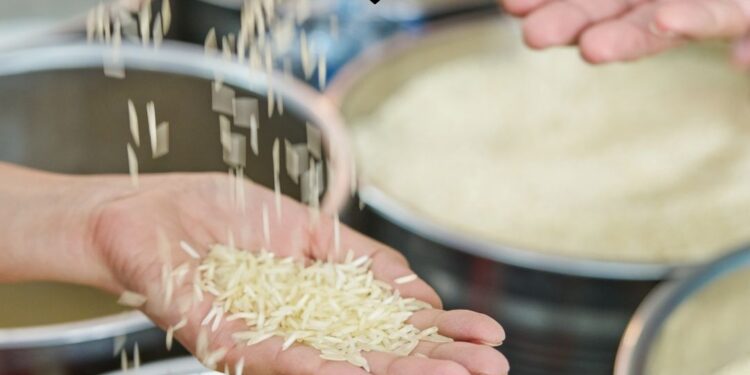Introduction to Basmati Rice Export Business
Basmati rice holds a special place in the global food industry due to its distinctive aroma, long grain structure, and exquisite taste. For centuries, it has been cultivated primarily in the Indian subcontinent and is now highly sought after worldwide. A trusted basmati rice exporter plays a crucial role in delivering this premium grain to international markets while maintaining quality, consistency, and regulatory standards.
India is the largest producer and exporter of basmati rice, with its fertile lands in Punjab, Haryana, and Uttar Pradesh yielding the best varieties. Exporters from these regions serve customers across the Middle East, Europe, North America, and Asia. Understanding the operations, standards, and practices of a basmati rice exporter helps global buyers make informed decisions while sourcing.
What Makes Basmati Rice Globally Preferred
Basmati rice is not just a grain; it’s a brand of its own. Its popularity is based on several qualities that distinguish it from other rice types:
- Aromatic Nature: Naturally fragrant, thanks to the compound 2-acetyl-1-pyrroline.
- Long Grain Length: Often extends further after cooking, retaining fluffiness.
- Non-Sticky Texture: Cooks to perfection with separate grains.
- Low Glycemic Index: Considered better for controlled blood sugar levels.
- Nutrient-Rich: Offers fiber, essential amino acids, and minerals.
A proficient basmati rice exporter ensures that these attributes are preserved from harvest to packaging.
Types of Basmati Rice Offered by Exporters
Each basmati rice exporter typically offers a wide range of varieties tailored to different markets. Some of the most commonly exported types include:
- Traditional Basmati: Known for its intense aroma and aged texture.
- 1121 Basmati Rice: Longest grain variant, widely demanded in Gulf countries.
- Pusa Basmati Rice: Hybrid with high yield and fine cooking quality.
- Sella Basmati Rice: Parboiled and easy to cook, ideal for commercial kitchens.
- Steam Basmati Rice: Processed with steam to retain natural characteristics.
Each variety caters to specific customer demands, and an experienced basmati rice exporter can provide accurate guidance based on regional preferences.
Key Responsibilities of a Basmati Rice Exporter
Being a basmati rice exporter involves much more than sourcing and selling rice. It is a responsibility that demands attention to quality control, international compliance, logistics, and customer satisfaction. Core functions include:
- Quality Assurance: Regular lab testing, grain length verification, moisture checks, and pesticide control.
- Packaging and Branding: Offering packaging in 1kg, 5kg, 10kg, 25kg, and bulk containers with private labeling.
- Documentation and Certification: Exporters must adhere to certifications like ISO, HACCP, APEDA, and FSSAI.
- Customs and Compliance: Managing export licenses, country-specific regulations, and health checks.
- Customer Support and After-Sales: Addressing buyer queries, providing sample shipments, and maintaining relations.
These practices define the trustworthiness and reliability of a basmati rice exporter in global trade.
Global Markets Served by Basmati Rice Exporters
Indian basmati rice exporters have a significant presence in over 100 countries. The major importers include:
- United Arab Emirates (UAE)
- Saudi Arabia
- United States of America
- United Kingdom
- Iran
- Canada
- Germany
- South Africa
- Australia
Exporters often customize shipment sizes, packaging, and logistics depending on import regulations and consumer preferences in these countries. Bulk orders and private labeling are common in the Middle East and African regions.
Quality Control in Basmati Rice Exporting
Consistency in quality is the backbone of any successful basmati rice exporter. Here’s how quality control is maintained:
- Soil and Seed Selection: Starting from high-grade seeds sourced from certified farms.
- Harvesting Techniques: Manual and mechanized harvesting at peak ripeness.
- Milling Standards: Removal of husk and polishing without losing natural aroma.
- Grading Systems: Categorization based on grain length, broken percentage, and color.
- Aging Process: Premium basmati is aged for up to 2 years to enhance flavor.
Exporters employ in-house or third-party labs to test for toxins, foreign materials, and bacteria, ensuring export-grade compliance.
Packaging Options by Basmati Rice Exporters
Packaging is critical to preserve the freshness and aroma of basmati rice. Every professional basmati rice exporter invests in world-class packaging solutions:
- Non-Woven Fabric Bags: Recyclable and breathable, ideal for long-term storage.
- Vacuum Packaging: Preferred for retail products with minimal air contact.
- HDPE and BOPP Bags: Durable, waterproof, and customizable.
- Jute Bags: Traditional and sustainable packaging often used in niche markets.
- Bulk Containers: For large-scale orders, including container shipments up to 25MT.
Customization with logos, barcodes, nutritional information, and language translations is also offered by top exporters.
Certifications and Standards Maintained by Exporters
Maintaining global food safety and trade regulations is vital for any reputed basmati rice exporter. Some of the essential certifications include:
- FSSAI (India)
- ISO 22000 / 9001
- HACCP
- GMP (Good Manufacturing Practices)
- Halal and Kosher Certification
- BRC Global Standard for Food Safety
- US FDA Registration (for American markets)
Compliance with these standards ensures that rice exported is safe, traceable, and accepted across major food regulatory bodies worldwide.
Logistics and Export Processes Involved
Exporting basmati rice requires a streamlined logistics strategy. Here’s a breakdown of the key steps followed by a basmati rice exporter:
- Order Finalization: Buyer places order with specifications and payment terms.
- Rice Processing: Milling, polishing, sorting, and grading.
- Packaging: Based on destination and shipping method.
- Customs Clearance: Involves export documentation, fumigation certificates, and quality inspections.
- Shipping: Mostly via containers (FCL or LCL) from ports like Mundra, Kandla, or Mumbai.
- Tracking and Delivery: Exporters provide shipment tracking and customer updates.
This system ensures timely delivery, minimal damage, and transparency throughout the process.
Common Challenges Faced by Basmati Rice Exporters
The journey of a basmati rice exporter is not without hurdles. Some common challenges include:
- Price Fluctuations: International demand and domestic yield affect pricing.
- Weather Dependency: Monsoon delays or floods can impact crop quality.
- Regulatory Barriers: Import restrictions and sudden changes in trade policies.
- Logistical Delays: Port congestion, container shortages, or documentation issues.
- Pest and Contamination Risks: Especially in poorly stored or mishandled shipments.
Experienced exporters mitigate these risks through smart inventory practices, insurance, and market diversification.
How to Choose the Right Basmati Rice Exporter
Choosing the right exporter is vital for distributors, retailers, and food businesses abroad. Key factors to evaluate include:
- Experience and Market Reputation
- Range of Basmati Varieties Offered
- Packaging Flexibility and Customization
- Certifications and Regulatory Compliance
- Customer Feedback and Reviews
- Sample Availability Before Order Finalization
- Shipping Time and Logistic Strength
- After-Sales Support and Dispute Resolution
A reliable basmati rice exporter builds long-term relationships by ensuring quality, trust, and transparency.
Future Trends in Basmati Rice Exporting
The global demand for premium rice is expected to rise. Here’s how the industry is evolving:
- Organic Basmati Rice Demand: Exporters are focusing on certified organic farming.
- Digitalization in Trade: Blockchain and real-time shipping updates are becoming standard.
- Sustainable Packaging: Eco-friendly packaging is being adopted by exporters.
- Expansion into New Markets: Latin America, Central Asia, and Africa are emerging markets.
- Private Label Opportunities: More retailers seek private branding for basmati rice.
Top exporters are already investing in digital tools, farm-to-port traceability, and climate-resilient farming to stay competitive.
Conclusion
The role of a basmati rice exporter is central to connecting India’s premium agricultural product with the world. From field to foreign shelves, it requires precision, quality commitment, global understanding, and continuous innovation. With the right exporter, businesses and consumers alike benefit from authentic basmati rice that meets international standards and taste expectations.
For global buyers, choosing a trusted basmati rice exporter is not just about price—it’s about ensuring quality, consistency, and long-term reliability.














